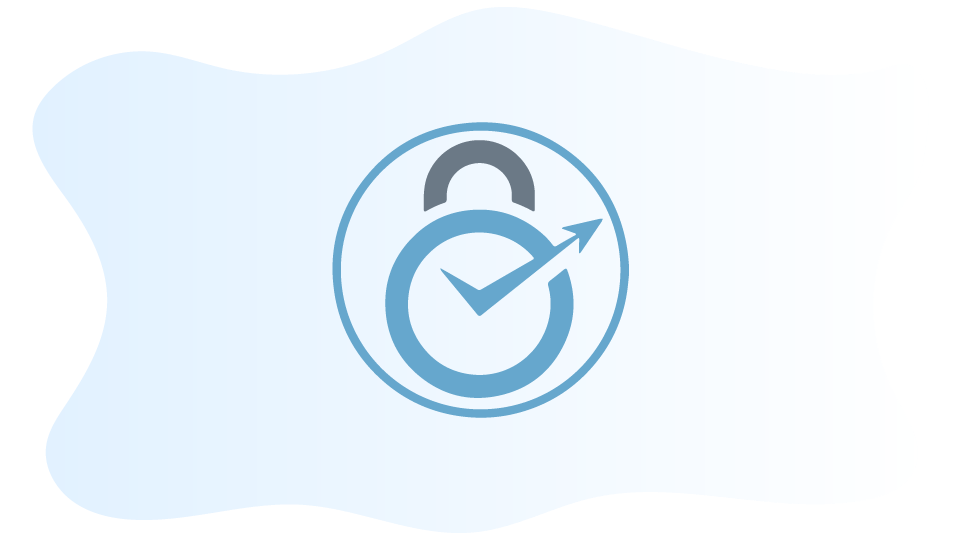What you will read in this article:
- ► The importance of planning application in reducing procrastination
- ► Setting clear goals
- ► Breaking down tasks
- ► Prioritizing tasks
- ► Creating a schedule
- ► Tracking progress
- ► Accountability
- ► Create to-do list
- ► set a timer
- ► Block distracting
- ► Reporting
Procrastination, the long-standing enemy of order and efficiency, can drag the fabric of our lives into darkness. The seductive whisper of "I'll do it later" echoes as deadlines loom and stress and anxiety weigh heavily on our shoulders. But the negative consequences of procrastination do not end there; Here are some of these harmful effects:
Procrastination can be very harmful to people if it is not controlled. A procrastinating person faces challenges in life that can confuse a person. Therefore, people need to minimize their procrastination. A program that can control the framework of one's life can save one from procrastination. While it may seem like a simple issue, the psychology behind procrastination is complex and multifaceted.
One of the main psychological factors behind procrastination is the concept of self-regulation. Self-regulation refers to our ability to control our thoughts, emotions, and behaviors to achieve our goals. When we procrastinate, we are essentially giving in to short-term gratification (such as watching TV or scrolling through social media) at the expense of long-term goals (such as completing a work project or studying for an exam).
Another psychological factor that contributes to procrastination is fear of failure. Many people procrastinate because they are afraid of not meeting their own or others' expectations. This fear can be paralyzing and lead to avoidance behaviors, such as putting off important tasks until the last minute.
Additionally, perfectionism can also play a role in procrastination. Perfectionists often have unrealistically high standards for themselves and fear making mistakes or producing subpar work. As a result, they may put off tasks to avoid facing potential criticism or disappointment.
So how can we overcome procrastination from a psychological standpoint? One effective strategy is to improve self-regulation skills. This can be done through techniques such as setting specific and achievable goals, breaking tasks down into smaller steps, and using rewards and consequences to motivate ourselves.

Read more: Students should not read before reading this article!
Addressing failure is another important step in overcoming procrastination. It's important to recognize that making mistakes is a natural part of learning and growth, and that failure does not define our worth as individuals. By reframing our mindset around failure and embracing it as an opportunity for growth, we can reduce the fear that drives procrastination.
Finally, addressing perfectionism involves challenging unrealistic standards and practicing self-compassion. It's important to remind ourselves that no one is perfect and that it's okay to make mistakes along the way. By cultivating a mindset of self-acceptance and kindness towards ourselves, we can reduce the anxiety that often fuels procrastination.
In conclusion, overcoming procrastination requires addressing its underlying psychological factors such as self-regulation, fear of failure, and perfectionism. By implementing strategies to improve these areas, such as goal-setting, reframing failure, and practicing self-compassion, we can begin to break free from the cycle of procrastination and move towards greater productivity and fulfillment in our lives.
The impact that procrastination can have on your life:
Tolerating a large amount of stress and anxiety: As we get closer to the deadline, the range of stress and anxiety caused by procrastination also widens. This not only disrupts our concentration and efficiency in performing tasks, but can also lead to physical problems such as headaches, heartaches, and insomnia.
Loss of work quality: Rushing tasks due to procrastination inevitably leads to loss of work quality. The likelihood of making mistakes, overlooking important details and ultimately delivering a poor result increases.
Missed opportunities: Procrastination can be a barrier to valuable opportunities. Procrastination in performing tasks or attending appointments, not only tarnishes our image, but also makes the path of career advancement and achieving our goals uneven.
Decreasing self-esteem: drowning in the whirlpool of procrastination and the accumulation of deferred tasks brings a sense of guilt, shame and ultimately a decrease in self-esteem. This creates a negative image of ourselves in our minds and weakens our motivation and ability to face challenges.
The importance of planning application in reducing procrastination
If you are also one of those people who want to change your lifestyle to a healthy lifestyle, you need to plan properly to live a purposeful and regular life.
Life without a purpose has no meaning. If you don't have a purpose in life, you have to wait for its consequences. A life without a purpose has no will to work, no excitement to spend, no companionship with friends to enjoy, and no reason to continue living.
Now, if you have a goal, in order to achieve some goals, you need basic planning so that it can bring you closer and closer to your goals and finally reach the goal.
Scheduling apps can be very helpful in reducing procrastination by providing structure, organization, and accountability. Here are a few ways scheduling apps can help combat procrastination.
One of these applications is Reda, which is developed using the latest technologies and can be effective for many people to finish their work on time.
Comparing a procrastinate person with a person who is familiar with planning and time management
According to psychologist Pierre Steele, people who do not procrastinate and do not postpone tasks have high personality traits that they recognize as duty. People who have high conscientiousness are also at a high level in other areas such as self-discipline, perseverance, and personal responsibility.
procrastinate person and non-procrastinate person have clear differences. Some of these differences show up in behavior or the way they start their new work, for example, a procrastinate person does their most difficult tasks in the last hours of the day, while the non-procrastinate person does their most important tasks in the early hours of the morning.
A procrastinating person fantasizes more than action, while a disciplined person has nothing to do with fantasizing and is practical. Procrastinating people have little energy and when doing work, they like to finish it soon, but non-procrastinating people enjoy their work and do their work with more concentration and accuracy.
Introducing some examples of anti-procrastination apps:
overcome procrastination app reda:
This application provides a detailed and regular plan to achieve your goals with a real daily schedule reda has more unique features that you cannot see in other applications.With Rada, you can achieve your long-term and short-term goals.

overcome procrastination app Forest:
Using a reward system, this app motivates you to stay away from your cell phone while working.While you're out running errands, you can plant a plant seed in the forest and watch that tiny seed grow into a tree 30 minutes later, but if you leave the app to check social media or play a game, Your tree will wither. became.

overcome procrastination app Freedom:
This app allows you to block annoying websites and apps for a specified period of time.Simply select the apps and websites you want to block and start a Freedom session.If you try to open a blocked app or website during a session, Freedom will prevent it from opening.

overcome procrastination app FocusMe:
Using the Pomodoro technique, this program helps you to focus on your tasks in specific time frames.With FocusMe you can block or restrict apps or websites.

overcome procrastination app Habitica:
This app makes tasks more engaging and fun by turning them into a role-playing game.Habitica allows you to enjoy life while working towards your goals.Enter your hobbies, goals, and daily to-do list, and choose a character of your choice.

Other advantages of the anti-procrastination include the following:
- Setting clear goals: Planning applications allow users to set specific, achievable goals and deadlines for their tasks and projects. This helps to create a sense of purpose and direction, making it easier to stay focused and motivated.
- Breaking down tasks: Procrastination often occurs when tasks feel overwhelming or unmanageable. Planning applications enable users to break down larger projects into smaller, more manageable steps, making it easier to get started and make progress.
- Prioritizing tasks: Planning applications allow users to prioritize their tasks based on urgency and importance. This helps to ensure that the most critical tasks are completed first, reducing the likelihood of procrastinating on important responsibilities.
- Creating a schedule: Planning applications enable users to create a daily or weekly schedule for their tasks and activities. Having a clear plan for how time will be spent can help prevent procrastination by minimizing the opportunity for distractions or indecision.
- Tracking progress: Planning applications often include features for tracking progress on tasks and projects. This can provide a sense of accomplishment as items are checked off the list, motivating users to continue working towards their goals.
- Accountability: Many planning applications allow users to share their plans with others or join communities of like-minded individuals who can provide support and encouragement. This accountability can help reduce procrastination by creating a sense of responsibility to follow through on commitments.
- create a to-do list: with to-do lists, you can regularly list and prioritize your tasks.
- set a timer and reminders: these apps help you to set a specific schedule for your tasks and get notified of their due dates through reminders.
- block distractions: Many of these apps allow you to block distracting websites and apps while you work to improve your focus.
- Reporting and Graphing: By viewing reports and graphs about your performance, you can stay motivated and track your progress in overcoming procrastination.
Read more: Change your world with the Pareto principle
Overall, planning applications can be an effective tool for reducing procrastination by providing structure, organization, and motivation for completing tasks and achieving goals. By utilizing these tools effectively, individuals can overcome the tendency to put off important responsibilities and work towards greater productivity and success.
Frequently Asked Questions
Other reasons for procrastination
Fear of being criticized
Low flexibility and not going under the burden of responsibility
Weakness in planning
Seeking pleasure and comfort
Everyday life and not trying to fix it
And…
Consequences of procrastination
Maybe by procrastinating for a while, the difficulty and pressure of doing your work and responsibility will be removed from your shoulders, you will feel relaxed and enjoy, but this time is short and you have to pay a heavy price.
